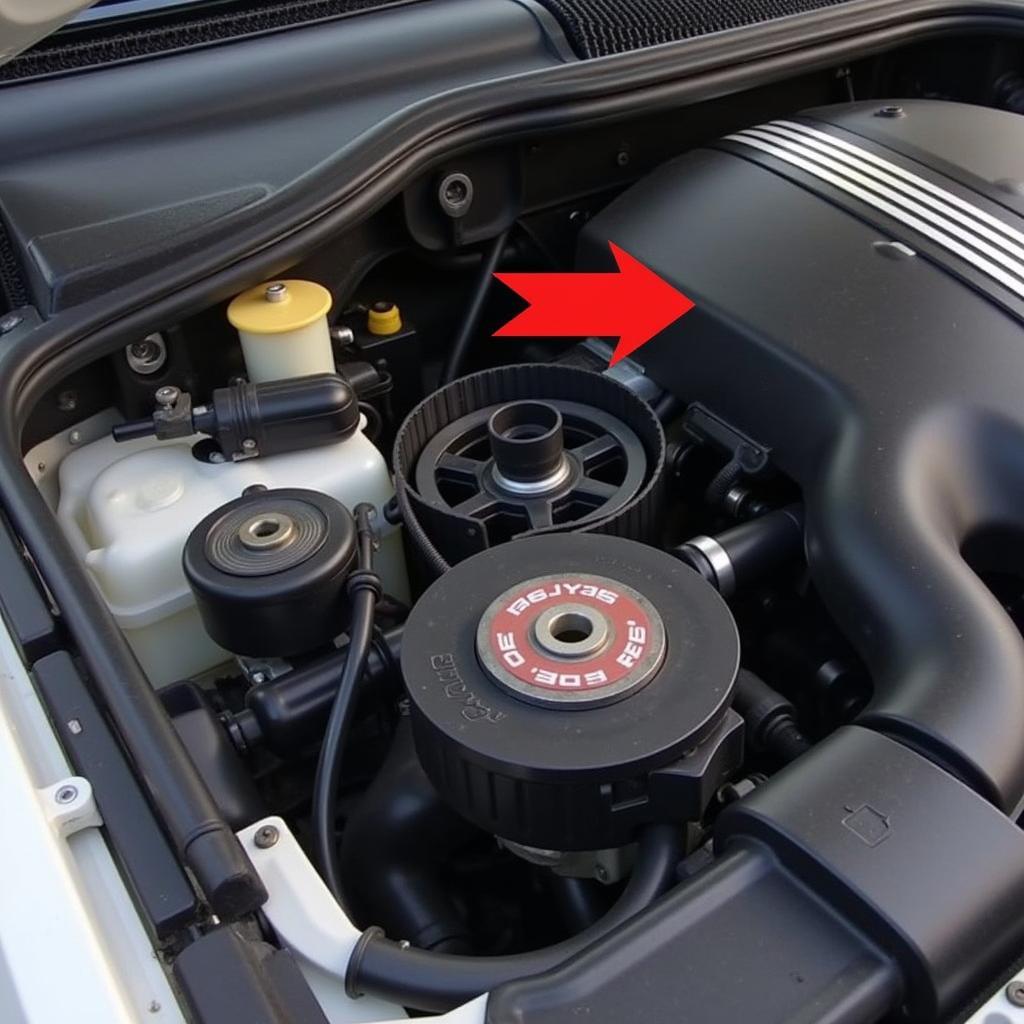A malfunctioning BMW audio amplifier can quickly turn your driving experience from enjoyable to frustrating. This guide covers everything you need to know about diagnosing, repairing, and even preventing issues with your BMW audio amplifier.
The most common symptom of a failing BMW audio amplifier is a complete loss of sound, or distorted audio. Other symptoms can include intermittent sound, static, or only certain speakers working. Identifying the root cause requires a systematic approach. 2013 bmw x5 no sound is a common issue and this article will provide you with some valuable troubleshooting steps.
Common BMW Audio Amplifier Problems
BMW audio amplifiers, like any electronic component, are susceptible to a variety of issues. These can range from simple loose connections to more complex internal failures.
- Blown Fuses: A blown fuse is a common and easily fixable problem. Always check your fuses first before moving on to more complicated diagnostics.
- Loose or Corroded Wiring: Over time, wiring can become loose or corroded, disrupting the signal to the amplifier.
- Water Damage: Exposure to moisture can damage the delicate circuitry within the amplifier.
- Overheating: Excessive heat can damage the amplifier’s internal components. This can be caused by a faulty cooling fan or by pushing the system too hard for extended periods.
- Internal Component Failure: Sometimes, components within the amplifier itself can fail, requiring repair or replacement.
 Common BMW Audio Amplifier Problems
Common BMW Audio Amplifier Problems
Diagnosing a Faulty BMW Audio Amplifier
Diagnosing a faulty bmw audio amplifier requires a methodical approach. Begin by checking the simple things first, like fuses and wiring. If these are okay, you may need to delve deeper.
- Check the Fuses: Locate the fuse box and check the fuse related to the audio system. If it’s blown, replace it with a fuse of the same amperage.
- Inspect the Wiring: Visually inspect the wiring connected to the amplifier for any signs of damage, looseness, or corrosion.
- Test the Amplifier’s Power Supply: Use a multimeter to check if the amplifier is receiving the correct voltage.
- Test the Amplifier’s Output: Use a multimeter or a test speaker to check if the amplifier is sending a signal to the speakers.
2004 bmw x5 audio amplifier location can sometimes be tricky to find. This guide will help you locate the amplifier in your X5.
Repairing or Replacing Your BMW Audio Amplifier
Once you’ve diagnosed the problem, you can determine if repair or replacement is necessary. Simple issues like blown fuses or loose wiring can often be fixed easily. More complex problems, like internal component failure, often require professional help.
- DIY Repairs: For minor issues, you may be able to perform the repairs yourself. However, be careful not to cause further damage.
- Professional Repair: If you’re uncomfortable working on the electrical system, it’s best to take your BMW to a qualified technician.
- Replacement: If the amplifier is beyond repair, you’ll need to replace it. You can purchase a new or used amplifier. Ensure compatibility with your specific BMW model and audio system.
How to Prevent BMW Audio Amplifier Problems
Preventing problems is always better than dealing with them after they occur. Here are some tips to help keep your BMW audio amplifier in top condition.
- Avoid Overloading the System: Don’t push the system to its limits for extended periods.
- Keep the System Dry: Protect the amplifier from moisture.
- Regularly Check the Fuses and Wiring: Periodically inspect the fuses and wiring for any signs of damage.
- Professional Inspections: Have your audio system checked by a professional during regular maintenance.
2006 bmw x5 4.8is sound system is a premium audio experience, and maintaining your amplifier is key to enjoying it to the fullest.
“Regularly inspecting your BMW’s audio system can prevent costly repairs down the road,” says John Miller, a certified BMW technician with over 20 years of experience. “Simple checks like ensuring the fuses are intact and the wiring is secure can save you a lot of hassle.”
Conclusion
Maintaining a functioning bmw audio amplifier is crucial for a pleasant driving experience. By understanding the common problems, diagnostic procedures, and preventative measures, you can keep your BMW’s sound system in optimal condition. bmw e46 cabrio audio system owners often encounter amplifier issues. This guide can help you address them proactively. “Addressing audio issues promptly ensures a more enjoyable driving experience,” adds Maria Sanchez, a leading car audio specialist.
FAQ
- What are the common signs of a faulty BMW audio amplifier?
- How do I check the fuses in my BMW?
- Can I replace a BMW audio amplifier myself?
- Where is the bmw audio amplifier located?
- How can I prevent audio amplifier problems?
- What tools do I need to diagnose amplifier problems?
- How much does it cost to replace a BMW audio amplifier?
For further assistance, contact us via Whatsapp: +1 (641) 206-8880, Email: CARDIAGTECH[email protected] or visit us at 276 Reock St, City of Orange, NJ 07050, United States. We have a 24/7 customer support team. You can also find more helpful articles on our website 2008 bmw 535xi audio.


